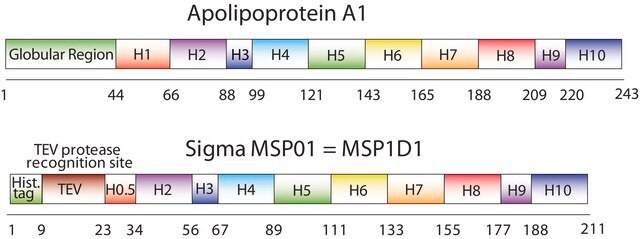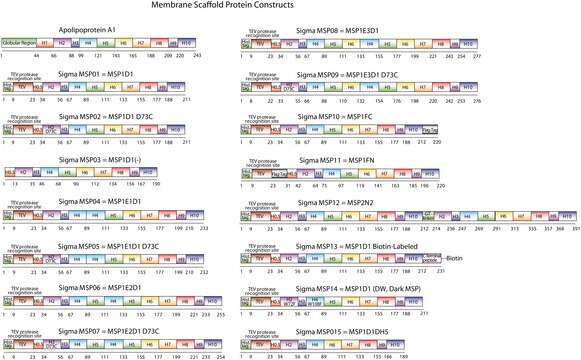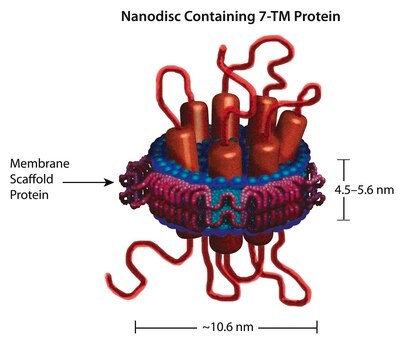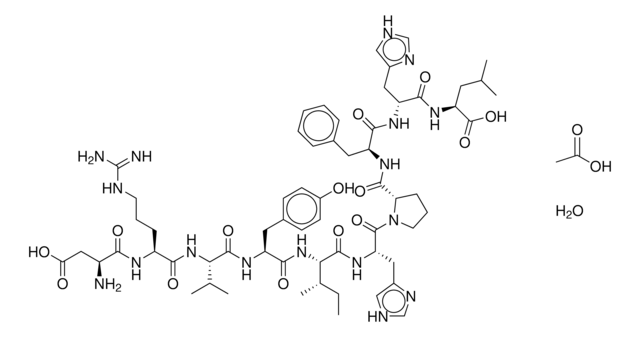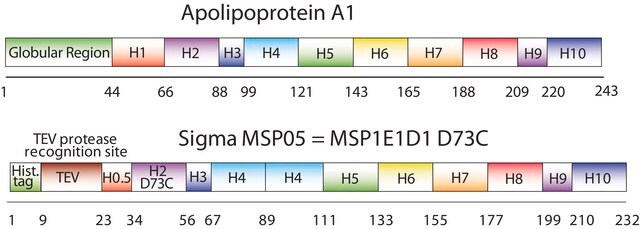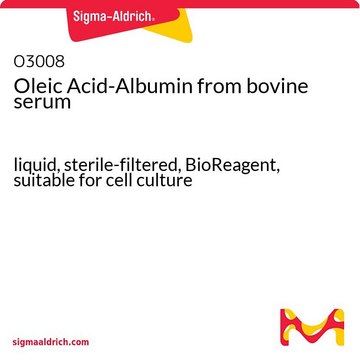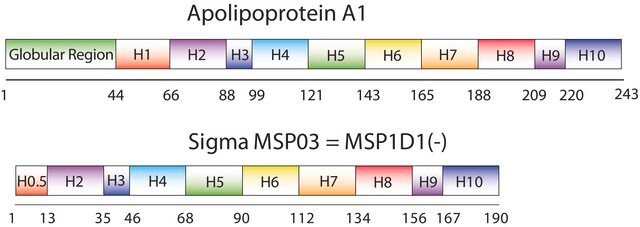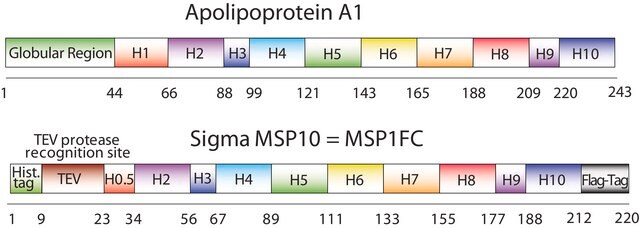MSP02
Membrane Scaffold Protein 1D1 D73C
recombinant, expressed in E. coli, Cysteine substituted at position 73
About This Item
Produits recommandés
Produit recombinant
expressed in E. coli
Niveau de qualité
Essai
≥90% (SDS-GE)
Forme
buffered aqueous solution
Conditions d'expédition
ambient
Température de stockage
−20°C
Description générale
The first MSP, MSP1, was engineered with its sequence based on the sequence of A-1, but without the globular N-terminal domain of native A-1. The Membrane Scaffold Protein 1D1 (MSP1D1) variant of MSP1 deletes the first 11 amino acids in the Helix 1 portion (referred to as “H0.5” in the accompanying figure) of the original MSP1 sequence. The D73C variant of MSP1D1 (MSP1D1 D73C) substitutes a cysteine (C) for an aspartic acid (D) at position 73 of the original native A-1 sequence, within the Helix 2 segment (H2) of the protein.
Application
Informations légales
- 7,691,414 Membrane scaffold proteins
- 7,662,410 Membrane scaffold proteins and embedded membrane proteins
- 7,622,437 Tissue factor compositions and methods
- 7,592,008 Membrane scaffold proteins
- 7,575,763 Membrane scaffold proteins and tethered membrane proteins
- 7,083,958 Membrane scaffold proteins
- 7,048,949 Membrane scaffold proteins
Code de la classe de stockage
12 - Non Combustible Liquids
Classe de danger pour l'eau (WGK)
WGK 2
Point d'éclair (°F)
Not applicable
Point d'éclair (°C)
Not applicable
Faites votre choix parmi les versions les plus récentes :
Certificats d'analyse (COA)
Vous ne trouvez pas la bonne version ?
Si vous avez besoin d'une version particulière, vous pouvez rechercher un certificat spécifique par le numéro de lot.
Déjà en possession de ce produit ?
Retrouvez la documentation relative aux produits que vous avez récemment achetés dans la Bibliothèque de documents.
Les clients ont également consulté
Protocoles
Protocols for Membrane Scaffold Proteins and Nanodisc Formation
Notre équipe de scientifiques dispose d'une expérience dans tous les secteurs de la recherche, notamment en sciences de la vie, science des matériaux, synthèse chimique, chromatographie, analyse et dans de nombreux autres domaines..
Contacter notre Service technique
